Phonics development Worksheets for Ages 4-5
5 filtered results
-
From - To
Enhance your child's phonics skills with our engaging worksheets designed specifically for ages 4-5! Our collection helps young learners master letter recognition, sound matching, and basic word formation through fun activities and vibrant illustrations. Each worksheet nurtures essential reading skills in an interactive way, making learning enjoyable and effective. Perfect for parents and teachers alike, these resources support early literacy development in just a few minutes a day. Foster a love for reading and lay a strong foundation for future educational success with our phonics development worksheets. Explore our offerings and watch your child’s confidence grow as they discover the world of words!
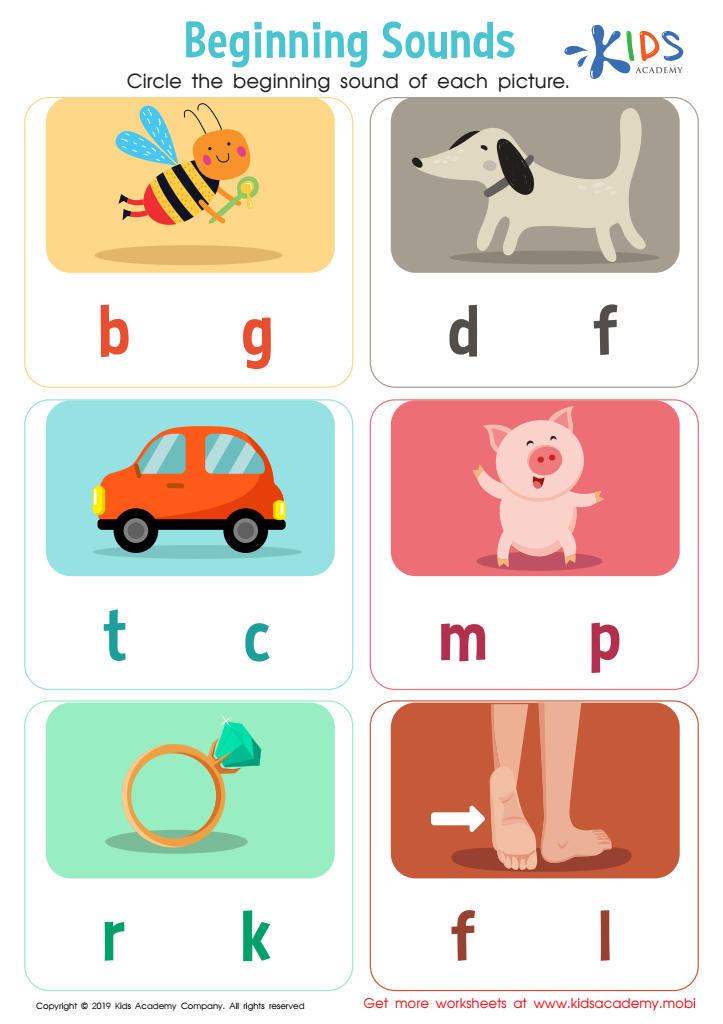

Beginning Sounds Worksheet
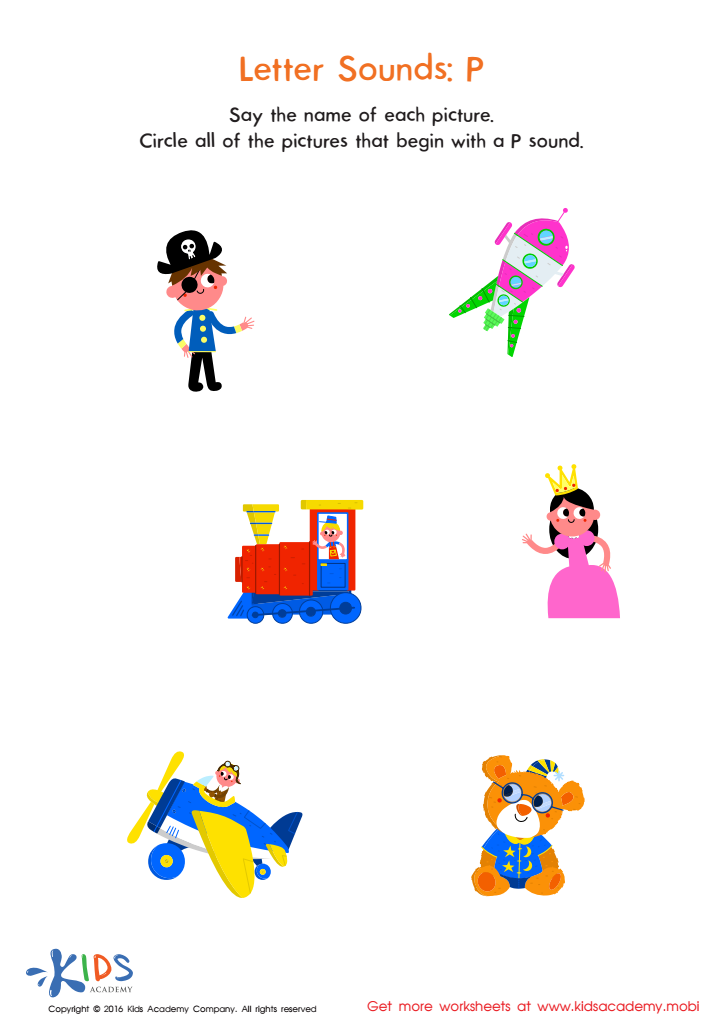

Letter P Sound Worksheet
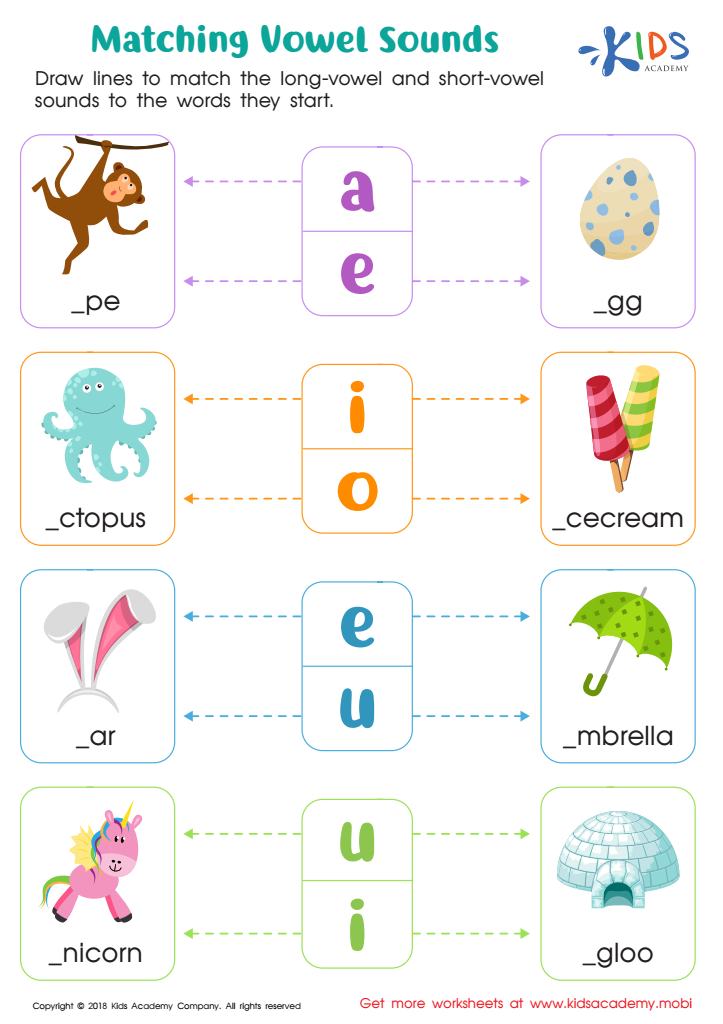

Matching Vowel Sounds Worksheet
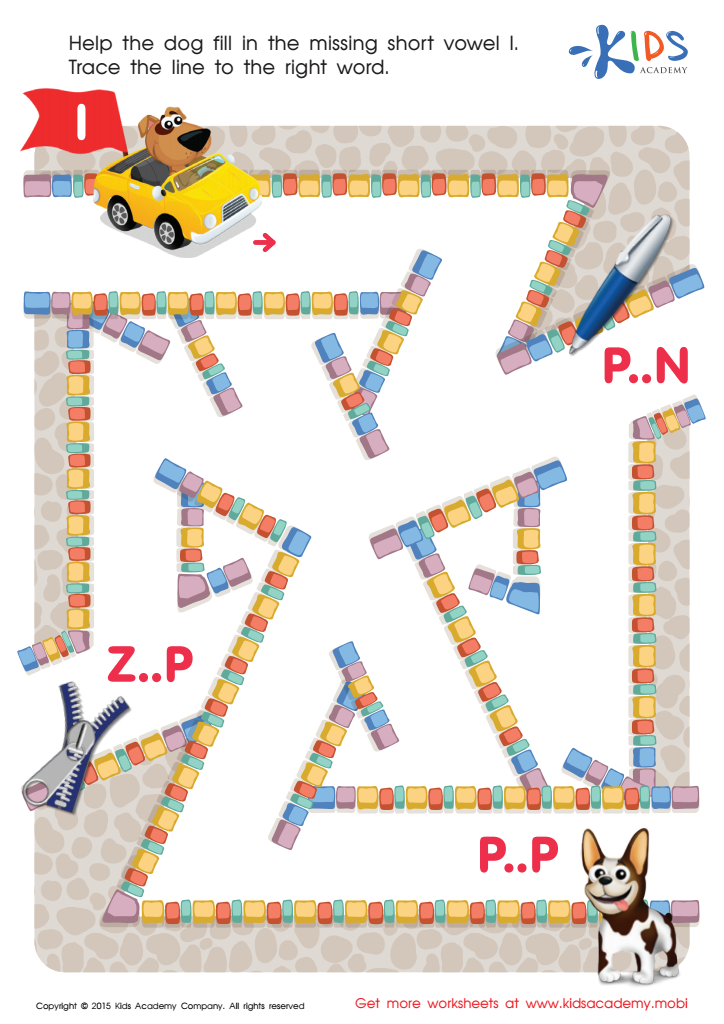

Short Vowel Sound I Worksheet
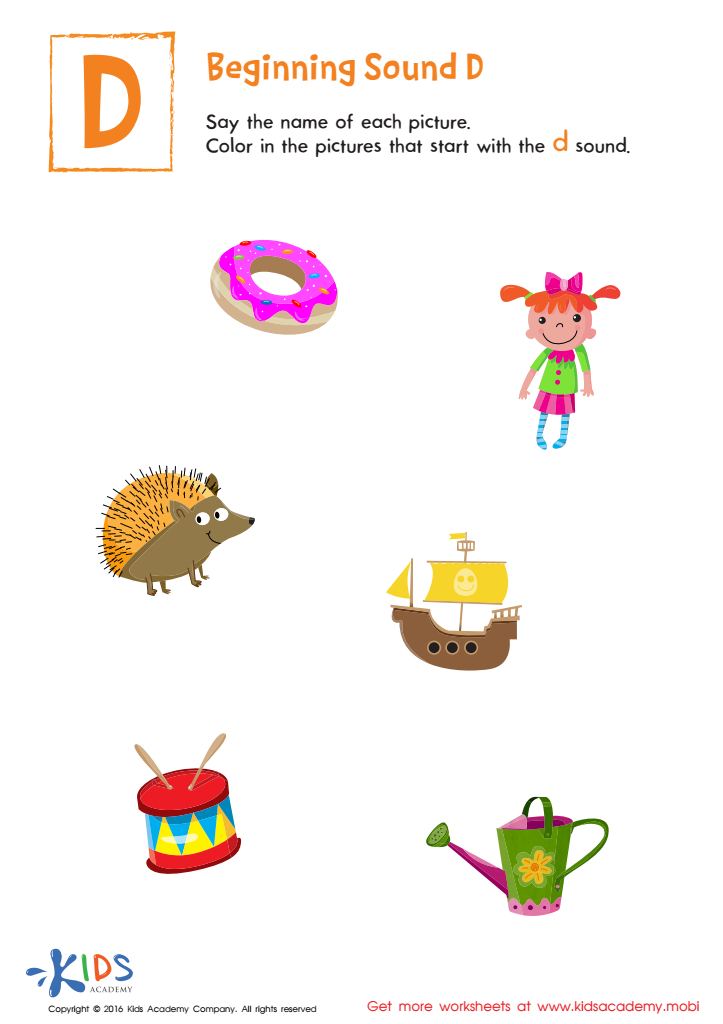

Beginning Sound D Worksheet
Phonics development is crucial for children aged 4-5 as it lays the foundation for reading proficiency and literacy skills. At this early stage, children begin to understand the relationship between letters and sounds, which is essential for decoding words. Typically, explicit phonics instruction enhances a child’s ability to recognize patterns in written language, facilitating smoother reading experiences. When children grasp phonemic awareness early, they are more likely to become confident readers, setting the groundwork for academic success.
Parents and teachers should prioritize phonics development because it fosters meaningful engagement with texts, encouraging a lifelong love for reading. As children learn phonics, they not only improve their reading capabilities but also enhance their vocabulary and comprehension skills. Moreover, strong phonics skills contribute to better writing abilities as students become aware of spelling patterns and word structures.
By nurturing phonics development, parents and teachers also promote self-esteem in young learners. The ability to read independently positively impacts a child's self-confidence, enhancing their participation in educational activities. In summary, investing time and resources into phonics development for children ages 4-5 is vital, as it equips them with essential skills for success in school and beyond.
 Assign to My Students
Assign to My Students




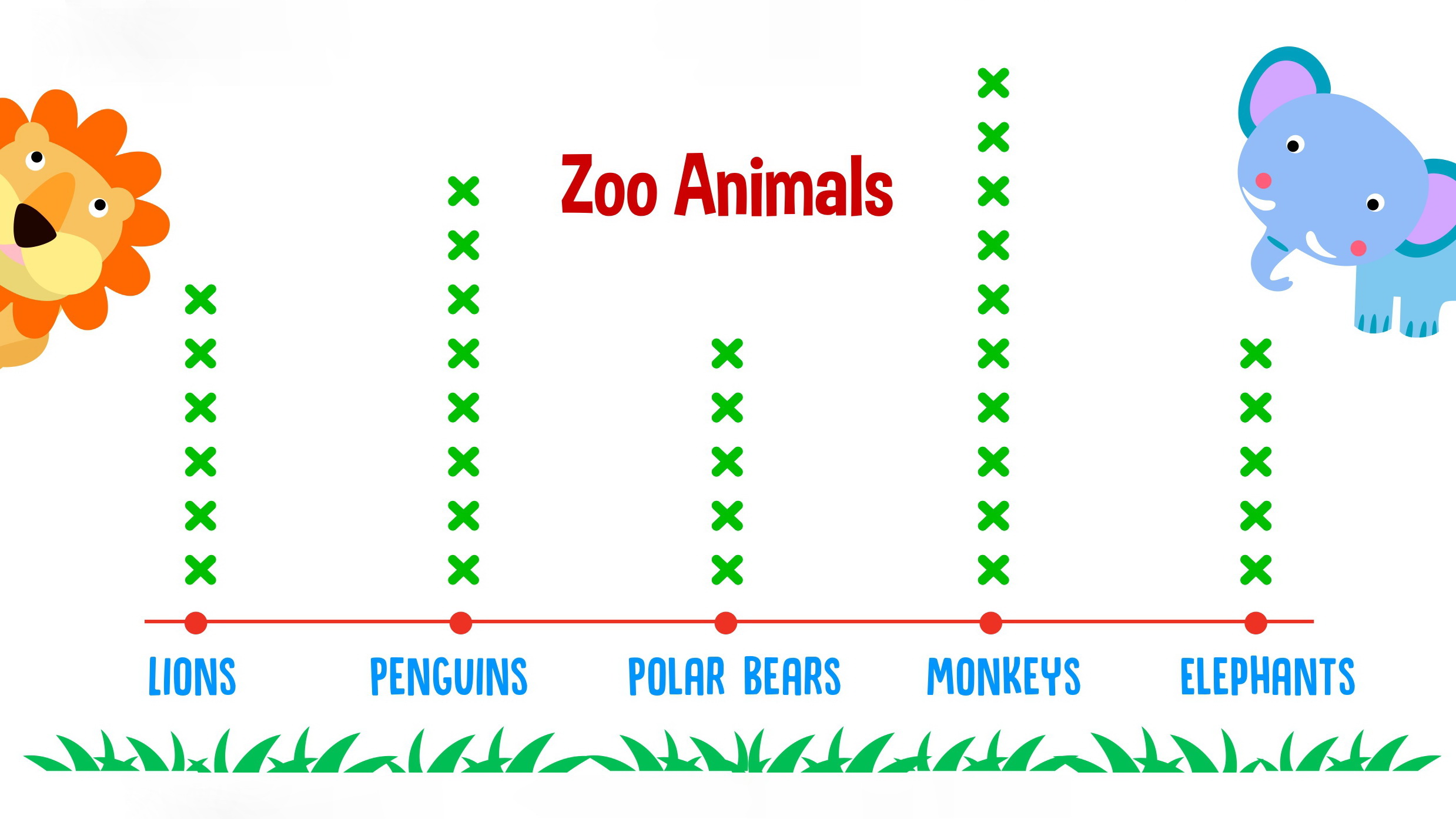
.jpg)











